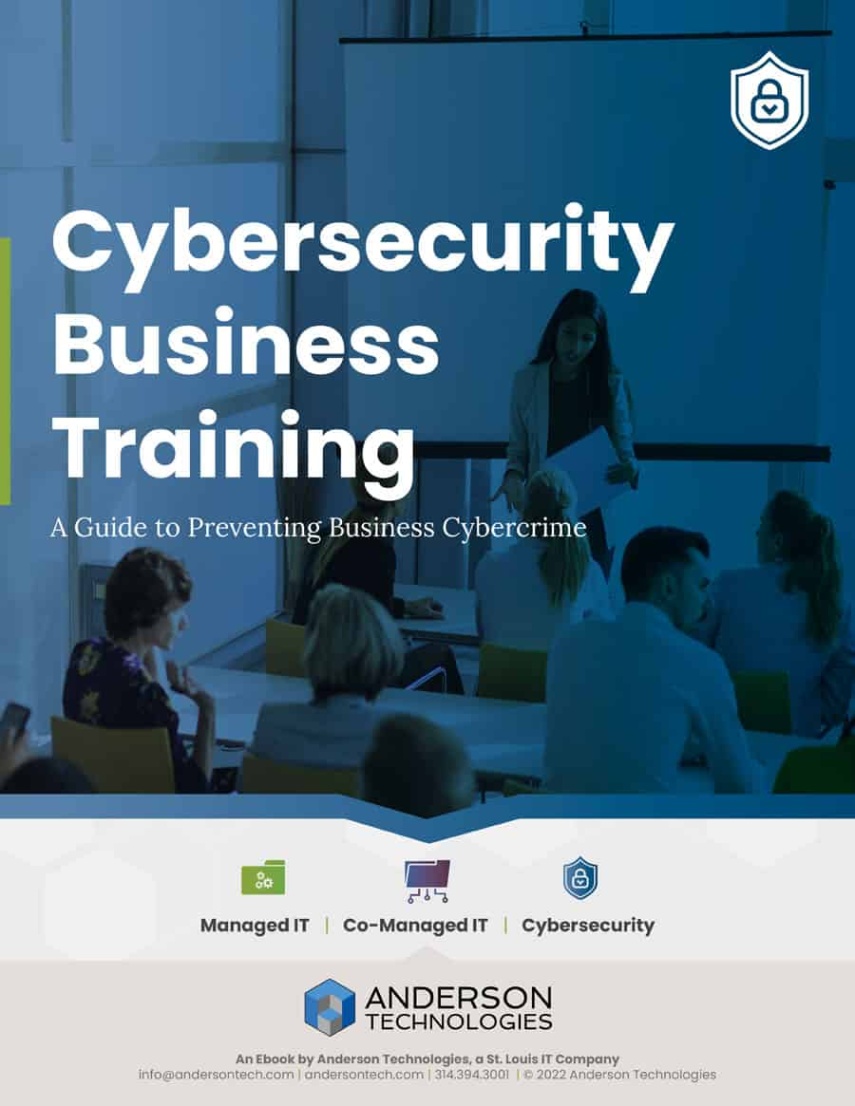Cybersecurity Training Made Easy
Are you tired of feeling overwhelmed and confused by all the tech jargon associated with cybersecurity? Do you want to protect yourself online but don’t know where to start? Well, you’re in luck because cybersecurity training has never been easier!

Image Source: pressidium.com
Gone are the days of complicated, technical language that only IT experts can understand. With free cybersecurity training courses, you can learn how to stay safe in a digital world without all the confusing jargon. These courses are designed for everyone, regardless of their technical expertise, so you can get savvy on staying safe online in no time.
One of the best things about cybersecurity training is that it covers a wide range of topics, from basic internet safety practices to more advanced techniques for protecting your data and privacy. You’ll learn how to identify and avoid common online threats, such as phishing scams and malware, and how to secure your devices and accounts against hackers.

Image Source: bleepstatic.com
But don’t worry, you won’t need to be a computer whiz to understand these courses. They are designed to be accessible and easy to follow, with clear explanations and practical examples that anyone can relate to. So whether you’re a beginner or a seasoned internet user, you can benefit from cybersecurity training that is made easy for everyone.
With the rise of cyber threats and online attacks, it’s more important than ever to stay vigilant and informed about how to protect yourself online. By taking advantage of free cybersecurity training, you can arm yourself with the knowledge and skills you need to navigate the digital world safely and securely.

Image Source: helpnetsecurity.com
So why wait? Start your cybersecurity training journey today and empower yourself to stay safe online without all the confusing tech jargon. Remember, knowledge is power, and with the right training, you can confidently navigate the digital landscape and keep your personal information secure.
In conclusion, cybersecurity training made easy is the key to staying safe and secure in a digital world. Don’t let technical jargon hold you back from learning how to protect yourself online. Take advantage of free training courses and empower yourself with the knowledge and skills you need to stay safe in an increasingly digital world. Get savvy on cybersecurity today and take control of your online security.
Protect Yourself Online
In today’s digital age, it’s more important than ever to protect yourself online. With cyber threats constantly evolving and becoming more sophisticated, it’s crucial to stay vigilant and take steps to safeguard your personal information and data. Luckily, there are plenty of resources available to help you do just that, including free Cybersecurity training that requires no tech jargon to understand.
One of the first steps in protecting yourself online is to practice good password hygiene. This means creating strong, unique passwords for each of your accounts and changing them regularly. Avoid using easily guessable passwords, such as password123 or 123456, and consider using a password manager to securely store and generate complex passwords for you.
Another important aspect of online protection is being cautious about the information you share on social media and other online platforms. Be mindful of the privacy settings on your accounts and think twice before posting personal information such as your address, phone number, or birthdate. Cybercriminals can use this information to steal your identity or perpetrate other forms of fraud.
Phishing scams are another common threat in the online world. These scams typically involve fraudulent emails or messages that attempt to trick you into revealing sensitive information or clicking on malicious links. To protect yourself from phishing attacks, be wary of unsolicited emails asking for personal information and never click on links or download attachments from unknown sources.
It’s also important to keep your devices and software up to date with the latest security patches. Cybercriminals often exploit vulnerabilities in outdated software to gain access to your devices and data. Make sure to regularly check for updates and install them as soon as they become available to stay one step ahead of potential threats.
In addition to these proactive measures, it’s essential to be prepared for the worst-case scenario. Backing up your data regularly can help ensure that you don’t lose important files in the event of a cyber attack or data breach. Consider using Cloud Storage or an external hard drive to keep backups of your most critical information.
Free cybersecurity training resources can help you learn more about these and other best practices for staying safe online. These training programs are designed to be accessible to individuals of all skill levels, so you don’t need to be a tech expert to benefit from them. By taking the time to educate yourself on cybersecurity basics, you can better protect yourself and your information in an increasingly digital world.
Remember, staying safe online is a continuous process that requires ongoing awareness and vigilance. By making a conscious effort to follow best practices for cybersecurity and taking advantage of free training resources, you can reduce your risk of falling victim to cyber threats and enjoy a safer and more secure online experience. So, don’t wait any longer – get savvy on staying safe online today!
Stay Safe in a Digital World
In today’s digital age, it’s more important than ever to stay safe online. With cyber threats constantly evolving and becoming more sophisticated, it can be daunting to navigate the digital landscape. But fear not! With the right knowledge and tools, you can protect yourself and your information from cyber attacks.
One of the best ways to stay safe in a digital world is through Cybersecurity training. This training can help you understand the various types of cyber threats, how they can impact you, and what steps you can take to prevent them. The good news is that you don’t need to be a tech expert to benefit from cybersecurity training – no tech jargon required!
Cybersecurity training made easy is designed to be accessible to everyone, regardless of their level of technical knowledge. Whether you’re a complete beginner or someone with more experience, there are resources available to help you learn how to stay safe online. From Online Courses to workshops and seminars, there are plenty of options to choose from.
Protecting yourself online starts with understanding the risks. Cyber threats can come in many forms, including phishing scams, malware, ransomware, and social engineering attacks. By being aware of these threats and how they can impact you, you can take steps to protect yourself and your information.
One of the most important things you can do to stay safe in a digital world is to practice good cybersecurity hygiene. This includes using strong, unique passwords for all your accounts, enabling two-factor authentication whenever possible, and being cautious about what you share online. By following these basic guidelines, you can greatly reduce your risk of falling victim to cyber attacks.
Another key aspect of staying safe online is keeping your devices and software up to date. Cyber criminals often target vulnerabilities in outdated software to gain access to your information. By regularly updating your devices and software, you can patch these vulnerabilities and make it harder for hackers to exploit them.
No tech jargon needed! Cybersecurity training made easy is designed to be accessible to everyone, regardless of their level of technical knowledge. Whether you’re a complete beginner or someone with more experience, there are resources available to help you learn how to stay safe online.
One of the best ways to stay safe online is to be cautious about the information you share online. Think twice before posting personal information on social media or sharing sensitive data with unknown sources. By being mindful of what you share online, you can greatly reduce your risk of becoming a target for cyber criminals.
In addition to practicing good cybersecurity hygiene, it’s also important to be aware of the latest cyber threats and trends. Cyber criminals are constantly evolving their tactics, so it’s important to stay informed about potential risks and how to protect yourself. By staying up to date on the latest cybersecurity news, you can better prepare yourself for potential threats.
Protect yourself online by staying vigilant and proactive. By taking the time to educate yourself about cybersecurity and implementing best practices, you can greatly reduce your risk of falling victim to cyber attacks. Remember, staying safe in a digital world is all about being aware, informed, and prepared. With the right knowledge and tools, you can navigate the digital landscape with confidence and peace of mind.
No Tech Jargon Needed!
In a world where we are constantly connected online, it is more important than ever to stay safe and protect our personal information. However, for many people, the thought of Cybersecurity can be overwhelming and intimidating, especially when it comes to all the technical jargon that is often used. But fear not, because you don’t need to be a tech expert to protect yourself online!
Cybersecurity training can seem daunting, with terms like phishing, malware, and firewalls being thrown around. But the truth is, you don’t need to understand all the technical jargon to stay safe online. In fact, many cybersecurity experts agree that the most important thing is to develop good habits and be aware of potential threats.
One of the easiest ways to protect yourself online is by creating strong, unique passwords for all your accounts. This may seem simple, but it is one of the most effective ways to prevent hackers from accessing your personal information. Avoid using easy-to-guess passwords like 123456 or password and instead opt for a combination of letters, numbers, and special characters.
Another important step in staying safe online is to be cautious of phishing emails. These are emails that appear to be from a legitimate source, but are actually designed to trick you into revealing personal information. If an email seems suspicious or asks for sensitive information, do not click on any links or provide any details. Instead, contact the company directly to verify the request.
It’s also essential to keep your devices and software up to date. Many cyber attacks target outdated systems with known vulnerabilities, so regularly updating your operating system, antivirus software, and other programs can help protect you from potential threats.
In addition to these basic steps, there are plenty of free resources available to help you learn more about cybersecurity without all the technical jargon. Many organizations offer Online Courses and tutorials that are designed for beginners and focus on practical tips for staying safe online.
For example, the National Cyber Security Centre (NCSC) offers a range of free resources, including guides on how to stay secure online and tips for creating strong passwords. These resources are designed to be accessible to everyone, regardless of their technical knowledge, making it easy for anyone to improve their cybersecurity skills.
There are also online communities and forums where you can ask questions and get advice from cybersecurity experts. Websites like Reddit and Stack Exchange have dedicated cybersecurity communities where you can learn from others and share your own experiences.
By taking advantage of these resources and developing good cybersecurity habits, you can protect yourself online without needing to understand all the technical jargon. Remember, staying safe online is a team effort, and by educating yourself and being aware of potential threats, you can reduce your risk of falling victim to cyber attacks. So don’t let the tech jargon scare you – with a little bit of knowledge and some common sense, you can navigate the digital world safely and securely.
free cybersecurity training